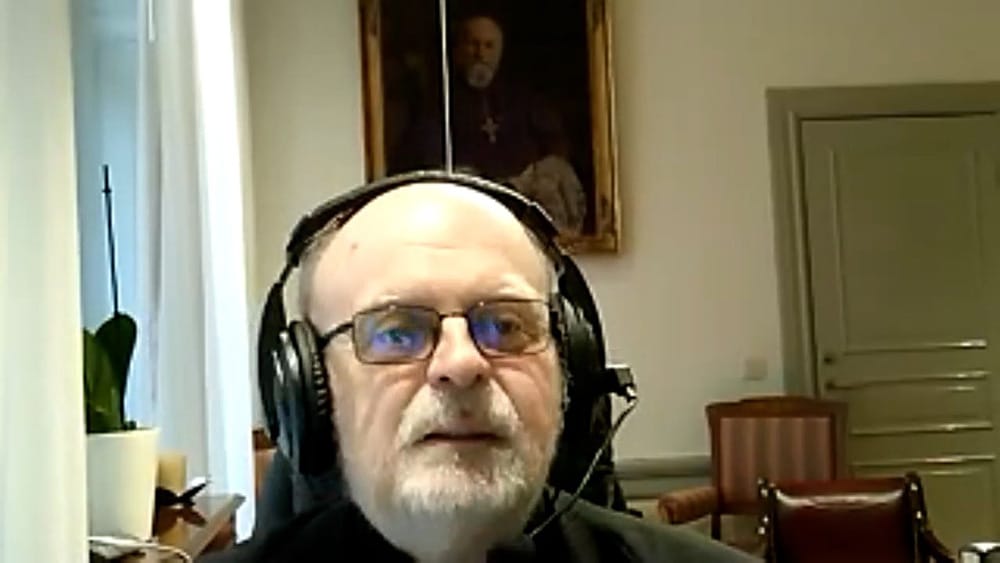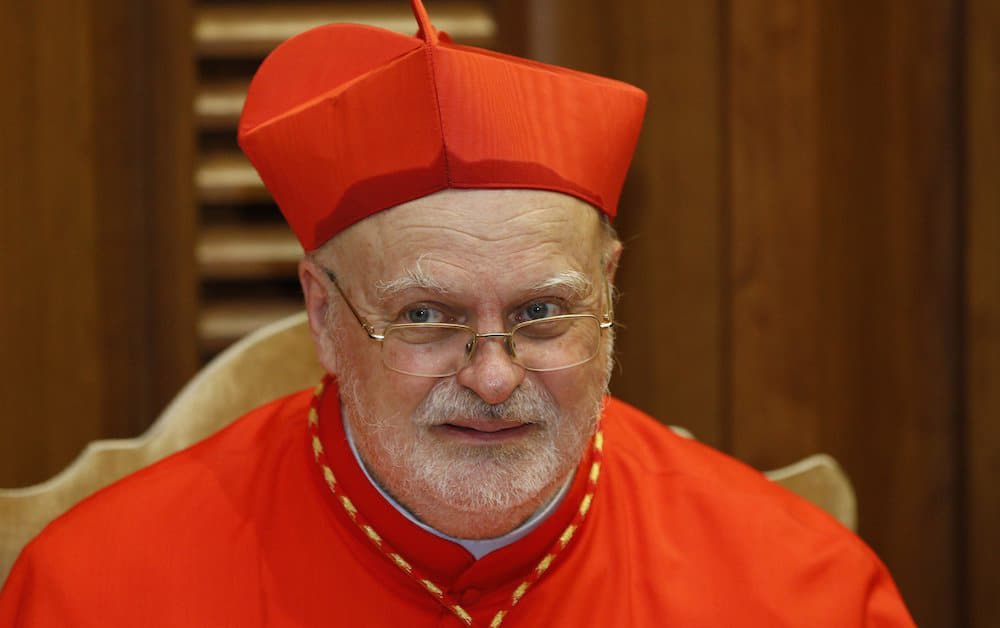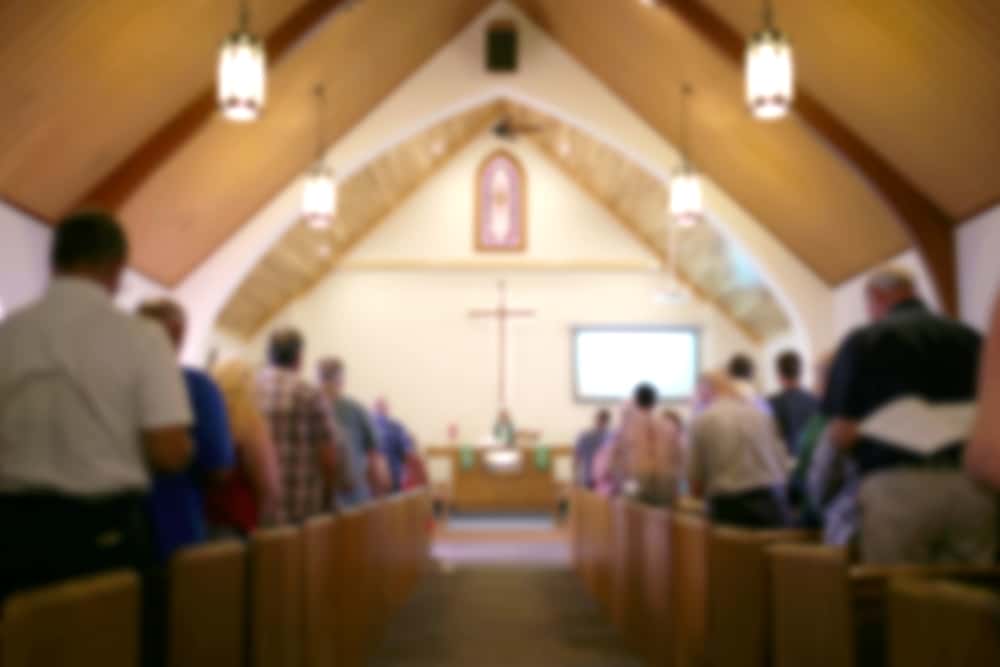LANDSKRONA, Sweden (CNS) — Sweden’s about-face in its response to the COVID-19 pandemic can give way to much-needed reflection and conversion in the country, said Cardinal Anders Arborelius of Stockholm.
“I think this is a time of conversion for Sweden,” Cardinal Arborelius told Catholic News Service Jan 8. “We now have more than 9,000 deaths for quite a small population. If we compare with the other Nordic countries, we must realize that we have not been able to do what we were supposed to do.”
At the start of the pandemic, while countries around the world enforced lockdowns and social distancing measures, the Swedish government took a more relaxed approach and downplayed the need to adopt similar restrictions.
However, as of Jan. 8, an estimated 9,262 people have died of the coronavirus, which is the highest in the Nordic region. For comparison, neighboring Denmark has had 1,487 deaths, while 584 people have died in Finland and 467 in Norway.
Furthermore, in a Dec. 17 broadcast on Swedish national public television, King Carl XVI Gustaf of Sweden made an unusually blunt assessment of the government’s handling of the pandemic, declaring his belief that “we have failed.”
“The people of Sweden have suffered tremendously in difficult conditions,” the king said. “One thinks of all the families who have been unable to say goodbye to deceased family members. It is a tough and traumatic experience not to be able to say a warm goodbye.”
Cardinal Arborelius told CNS that government authorities have now realized that simply recommending precautions is not enough, and they are coming to terms with the fact that “we were not able to protect the elderly.”
“I think that when the king made his speech, it was a sign that Sweden is aware that we have not been able to do what we were supposed to do” in confronting the pandemic, he said.
Nevertheless, the cardinal said that the change in the government’s approach has led to greater cooperation and financial assistance to faith-based charitable organizations, including Caritas Sverige, the Catholic Church’s charitable arm in the country.
“Caritas here in Stockholm and elsewhere has been able to distribute food, especially to those in need,” Cardinal Arborelius told CNS. “I think that the authorities have realized they have to do more to help all those who are in need.”
Caritas Sverige, he added, also has mobilized its volunteer outreach and organized a group of young people to distribute food and resources to the needy.
“I would say that many people have also awakened to be more generous, to be more helpful to other people. So, in that sense, I think it’s a bit better now,” he said.
He also said the Swedish government has been “more attentive to our needs” and that “even in a secular society, the authorities realize that churches and faith communities are important” in combatting the pandemic.
“For the first time, I (received) a Christmas card from the prime minister,” he said. “It’s a little sign that, somehow, they see in a situation like this that faith communities are important for the country.”
However, Cardinal Arborelius said he is concerned about a new law passed Jan. 8 by the Swedish parliament that would grant the government power to shut down businesses and limit visitors in public areas to prevent the spread of the virus.
“We have been a bit critical because up to now, we are only allowed to have seven people in church for religious services and Mass, even if it’s a big church,” he told CNS. “That is one of our main concerns now: to try to persuade them to do as in other Nordic countries that count distance between people and not the total number of people attending the church.”
While the government has “done what they could to restrict the number” of people in public places, there are still “a lot of people in some restaurants (while) in the churches, there are very few people.”
“People of course ask questions,” he said. “‘Why do they listen to the voice of commercial agents and not so much for religious or cultural events?’ So, there is a discussion going on. We hope that somehow, it will be possible to find a good measure where we can protect people in church (and) that we can offer more possibilities for people to come.”
While the government doesn’t “always do what we ask them to do,” the cardinal said that “we see more openness and more comprehensive attitudes toward the faith community in a situation of crisis because the authorities know that so many people rely upon their parishes, their churches and their faith communities.”
Cardinal Arborelius told CNS he hopes that the new year will be “a moment of profound reflection and hopefully, conversion” that will help people become “more aware of heaven, eternal life and faith.”
“We are very grateful the Holy Father has given us this Year of St. Joseph because that can be a very hopeful thing to realize that we have St. Joseph as our protector and our help; the father of the Holy Family is also our father.”
“That’s my prayer: hope for all of us (who) have seen so many events,” including the recent breach of the U.S. Capitol by supporters of President Donald Trump.
“All these things will help people to see that we have to convert, we have to be serious, we have to be more loving and caring, we have to come closer to Jesus and be a people of prayer, a people of justice, peace and reconciliation,” Cardinal Arborelius said.





